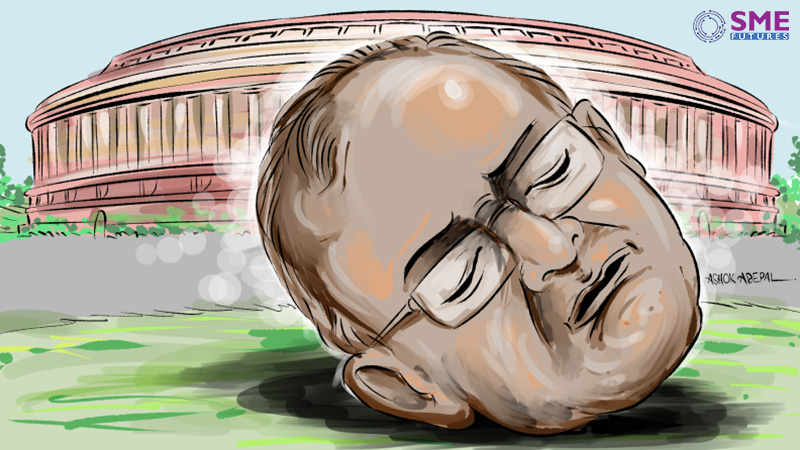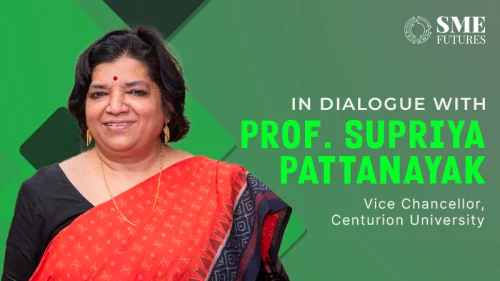Economic Survey, presented to Parliament ahead of the budget every year, is seen as a report card of the government’s performance on the Indian economy. This year too, it is no different but there is one change, that is, its presentation and production have improved for the better.
Economic Survey, prepared by the economists, is not taken very seriously while preparing the general budget, which is prepared by politicians with the help of bureaucrats. Politicians see the budget as yet another tool to tweak the economy to suit their constituency and win elections and certainly not as an instrument to rapidly achieve socio-economic development of the country.
Indian economy has certainly progressed well since independence but unfortunately, big-ticket growth and development have not happened barring when major reforms were initiated in 1991, compelled by the economic crisis at that point of time.
This explains the fact that India has missed several buses to get on to high growth path, that too inclusive, to rapidly become a developed economy with virtually no poverty.
Even if 30 to 40 per cent of what had been said in successive economic surveys had been implemented every year, the Indian economy would have been in a much better position. But unfortunately, the budgets had ensured there was only crony socialism or crony capitalism in the country and not balanced economic development for the common good of all.
The first Economic Survey prepared after Modi government came to power in 2014 said that India is in a sweet spot and it can only grow from there on when other top and emerging economies are faltering. Four years down the line, we find that the Indian economy has slowed down and started faltering while other faltering economies have started growing faster.
So apparently, there is something wrong with us and something good is happening to others.
It is, therefore, high time that the government takes Economic Survey seriously to ensure that there is some correlation between it and the budget so that the economy is put back on track to get on to high growth path in the coming years.
It is a welcome development that effects of demonetisation, a bad economics, is behind us and a difficult but important tax reform, GST, is taking firm root.
The fact that the economic growth has started looking up from the second half of this financial year 2017-18, the government should take steps to address challenges of education, employment and farm distress as pointed out by the Economic Survey so that the government do not fritter away yet another opportunity to move to a high growth path.
Finance minister Arun Jaitley has said that in the last few years, the Economic Survey has become a must read and most read document on Indian economy … universities have included it in their syllabuses … in addition to the review of the economy, the survey contains in-depth analysis, serious research as well as new policy ideas.
If this is true, Jaitley should set the tone by implementing several policy ideas suggested by the survey.
Now that the ill effects of demonetisation and GST are over, the government should move rapidly to fix the economy. Farm distress and sagging rural economy, hit largely by demonetisation, should get the much needed informal economy so that the job creation is boosted.
This also calls for massive investment in education to improve quality and make it job-oriented.
So far, we have achieved quantity in education which has helped in vastly improving literacy but now, the flavour of education should be job-relevant. Skill development, in particular, should become job-relevant and region-relevant.
Macroeconomic stability is critical for sustainable growth, that too at a time when oil prices and other global commodity prices are rising.
Hence, the government should shun from excessive populism in view of the general elections next year so that the path of fiscal consolidation and inflation control are not ignored considering that the economy is seeing broad-based revival.
One area of concern is that state governments are splurging the huge flow of money from the centre with 14th finance commission award of 42 per cent share to states from the divisible of tax resources from the earlier level of around 30 per cent.
This had made the state finances healthy but many states are using the money for wasteful expenditure like subsidies, supply of free power and so on.
This sort of fiscal profligacy is not good for the economy. Earlier, there was some check because additional 12 per cent was devolved to states by the planning commission on implementation of plan projects, which were mostly for socio-economic development of states.
Perhaps, this misuse of freedom by the states should be stopped. Also, this gives less headroom for the finance minister to overshoot the fiscal deficit target to step up public expenditure, particularly when private investment is not forthcoming.
With Jaitley’s hands tied on the fiscal front, it is worthwhile for him to consider aggressive disinvestment programme including the strategic sale of Air India, as recommended by the Economic Survey, to mop up additional resources for public expenditure to pump-prime the economy.
Also, tough decisions are needed to deal with unviable private sector unit banks as part of the effort of the resolution of twin balance sheet problem. Private sector needed to be nudged to invest.
There is no doubt except excess capacity but this can be tackled only if there is demand. Demand will be pushed up by creating rural demand and this can be done by incentivising, not through tax sops, private sector in the creation of rural infrastructures like rural roads, cold storage and rural industries.
The Economic Survey has highlighted the problems and suggested some policy prescriptions and it would be in the interest of the economy if the government stuck to fiscal consolidation path, even modest as suggested by the survey while boosting growth, which is now on recovery mode.
(PTI)











